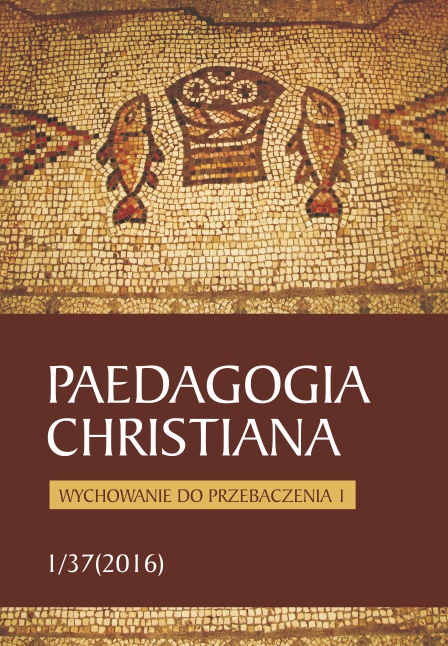Forgiveness in Ecumenical Dialogue: Reflections of a Not Indifferent Christian
DOI:
https://doi.org/10.12775/PCh.2016.004Keywords
church, ecumenism, dialogue, forgiveness, reconciliationAbstract
The article shows a difficult task the forgiveness of historical sins has to accomplish in the ecumenical dialogue in order to create a new space for reconciliation between Churches and religions. This can be done only when human efforts are “fostered by the grace of the Holy Spirit” (Decree on Ecumenism, par. 1). Openness and sensitivity are therefore required to His transforming action in the Church. There are many obstacles on the road leading to achieve mutual forgiveness and reconciliation. The process of the healing of memories does not imply a subconscious suppression of painful recollections of humiliations and harms caused to other believers in the history of Christianity. The most dramatic events of the past demand an open exchange of views on what has been often passed over in silence, so that a deep purification, a truly evangelical katharsis of memory and lasting reconciliation are eventually achieved. Without mutual confidence and forgiveness there is no future for ecumenism. The new millennium demands from Christians not to remain imprisoned by the memory of the past. Hope and confidence are grounded in the very fact that the Churches slowly learn in dialogue to see each other with long-sightedness of sincere forgiveness.References
Charta Oecumenica. Ein Text, ein Prozess und eine Vision der Kirchen in Europa, red. Ioniţa von Viorel, Sarah Numico. Genf / St. Gallen 2003.
Derrida, Jacques. „Szaleństwo przebaczenia”, Gazeta Wyborcza, 22–24 kwietnia 2000, 26–28.
Evdokimov, Paul. L’amour fou de Dieu. Paris: Éditions du Seul, 1973.
Hryniewicz, Wacław. „Grzech przeciwko Duchowi Świętemu a ekumenia”. W: Doctores honoris causa Universitatis Opoliensis, 62–82. Opole: Wydawnictwo Św. Krzyża, 2014.
Hryniewicz, Wacław. „Raport o stanie ekumenii”. Tygodnik Powszechny, 24 stycznia 2016, 33–35.
Hryniewicz, Wacław. „Reconciliation and Ecclesiology of Sister Churches”, Eastern Churches Journal 2, 3 (1995), 55–72.
Hryniewicz, Wacław. Na drogach pojednania. Warszawa: Verbinum, 1998.
International Theological Commission. “Memory and Reconciliation: The Church and the Faults of the Past” (2000). http://www.vatican.va/roman_curia/congregations/cfaith/cti_documents/rc_con_cfaith_doc_20000307_memory-reconc-itc_en.html.
Jankélévitch, Vladimir. Forgiveness. Chicago: University of Chicago Press, 2005.
Jankélévitch, Vladimir. Le pardon. Paris, 1967
Kasper, Walter. Wege zur Einheit der Christen. Freiburg: Verlag Herder, 2012.
Morin, Edgar. „Rozumność przebaczenia”. Gazeta Wyborcza, 22–23 lipca 2000, 27–28.
Paciorek, Antoni. Q – Ewangelia Galilejska. Lublin: TN KUL, 2001.
Rada Episkopatu ds. Ekumenizmu, Polska Rada Ekumeniczna. Karta ekumeniczna. Wytyczne dla wzrastającej współpracy pomiędzy Kościołami w Europie. Warszawa, 2003.
Schmidt, Christoph. „Historische Bitte um Vergebung. Der Papst gesteht in Turin vor Waldensern katholische Sünden ein“, KNA-ÖKI 26, 23. Juni 2015, 7;
Tutu, Desmond. No Future Without Forgiveness. New York: Doubleday, 1999.
„Waldenser antworten zurückhaltend auf Papst-Vergebungsbitte“, KNA-ÖKI 36, 1. September 2015, 6.
„Wspólne przesłanie do narodów Polski i Rosji”. http://bi.gazeta.pl/im/6/12322/m12322186,PRZESLWERSPOL.pdf
Downloads
Published
How to Cite
Issue
Section
Stats
Number of views and downloads: 1026
Number of citations: 0



